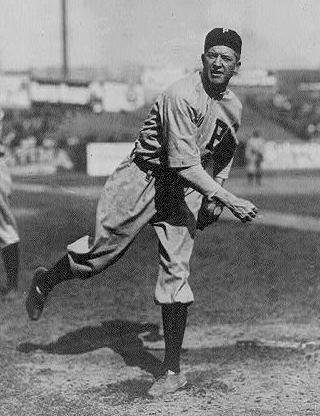
The 1938 elections to select inductees to the Baseball Hall of Fame were conducted along much the same lines as the 1937 vote. Toward the goal of 10 initial inductees from the 20th century, eight had now been selected; members of the Baseball Writers' Association of America (BBWAA) were once again given authority to select any players active in the 20th century, excepting active players. The Centennial Commission retained the responsibility of selecting inductees whose contributions were largely as non-players.
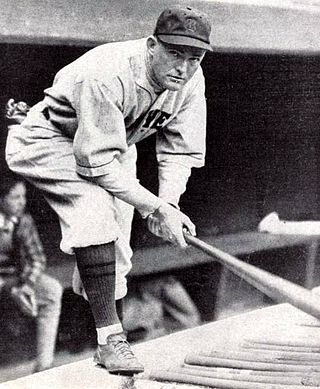
The 1942 election to the Baseball Hall of Fame was the first election that was conducted in three years. The Baseball Writers' Association of America (BBWAA) voted by mail to select from 20th century players and elected Rogers Hornsby.

Elections to the Baseball Hall of Fame for 1946 were conducted by methods refashioned and then fashioned again during the year. As in 1945, the Baseball Writers' Association of America (BBWAA) voted by mail to select from recent players, and elected no one. Also, as in 1945, the Old Timers Committee responded by electing the biggest class yet, then 10 and now 11 people: Jesse Burkett, Frank Chance, Jack Chesbro, Johnny Evers, Clark Griffith, Tommy McCarthy, Joe McGinnity, Eddie Plank, Joe Tinker, Rube Waddell, and Ed Walsh.
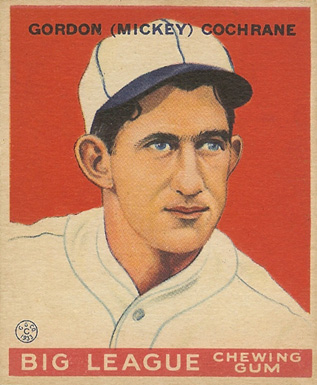
Elections to the Baseball Hall of Fame for 1947 followed yet another round of reform. The Baseball Writers' Association of America (BBWAA) continued to vote by mail but the Hall of Fame Committee had revised the procedures for that election and reduced its historical jurisdiction relative to the Old-Timers Committee. The BBWAA now considered major league players retired no more than 25 years. The reform seemed to work, as it elected four: Mickey Cochrane, Frank Frisch, Lefty Grove, and Carl Hubbell.

Elections to the Baseball Hall of Fame for 1948 followed the same procedures as 1947. The Baseball Writers' Association of America (BBWAA) voted by mail to select from players retired less than 25 years, with provision for a runoff in case of no winner. It elected two people on the first ballot, Herb Pennock and Pie Traynor. Meanwhile, the Old Timers Committee, with jurisdiction over earlier players, met on no schedule and not this year. Criticism continued that earlier players, as well as managers and other non-playing candidates, were being overlooked.

Elections to the Baseball Hall of Fame for 2004 proceeded in keeping with rules enacted in 2001. The Baseball Writers' Association of America (BBWAA) held an election to select from recent players; Dennis Eckersley and Paul Molitor gained induction to the Hall.

Elections to the Baseball Hall of Fame for 2006 proceeded in keeping with rules enacted in 2001, augmented by a special election; the result was the largest class of inductees (18) in the Hall's history, including the first woman elected, Effa Manley.

Elections to the Baseball Hall of Fame for 2002 proceeded in keeping with rules enacted in 2001. The Baseball Writers' Association of America (BBWAA) held an election to select from among recent players; Ozzie Smith was elected.
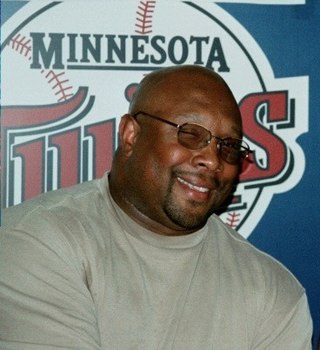
Elections to the Baseball Hall of Fame for 2001 followed the system in use since 1995. The Baseball Writers' Association of America (BBWAA) voted by mail to select from recent major league players and elected two: Kirby Puckett and Dave Winfield. The Veterans Committee met in closed sessions and selected two people from multiple classified ballots: Bill Mazeroski and Hilton Smith.
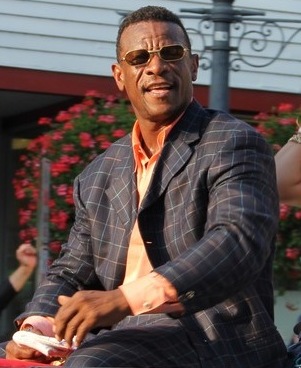
Elections to the Baseball Hall of Fame for 2009 proceeded according to revised rules enacted in 2001 and further revamped in 2007. The Baseball Writers' Association of America (BBWAA) held an election to select from among recent players, and elected Jim Rice and Rickey Henderson.

Elections to the Baseball Hall of Fame for 1951 followed the same rules as 1950. The Baseball Writers' Association of America (BBWAA) voted once by mail to select from major league players retired less than 25 years. It elected two, Jimmie Foxx and Mel Ott. Meanwhile, the Old-Timers Committee, with jurisdiction over earlier players and other figures, did not meet. A formal induction ceremony was held in Cooperstown, New York, on July 23, 1951, with National League president Ford Frick in attendance.

Elections to the Baseball Hall of Fame for 1979 followed the system in place since 1978, except that players who appeared on fewer than 5% of BBWAA ballots would now no longer be eligible in future elections. The Baseball Writers' Association of America (BBWAA) voted by mail to select from recent major league players and elected Willie Mays. The Veterans Committee met in closed sessions to consider older major league players as well as managers, umpires, executives, and figures from the Negro leagues. It selected Warren Giles and Hack Wilson. A formal induction ceremony was held in Cooperstown, New York, on August 5, 1979, with Commissioner of Baseball Bowie Kuhn presiding. The annual Hall of Fame Game, an exhibition contest, was played the following day; this was the first time that the induction ceremony and game were held on different days.
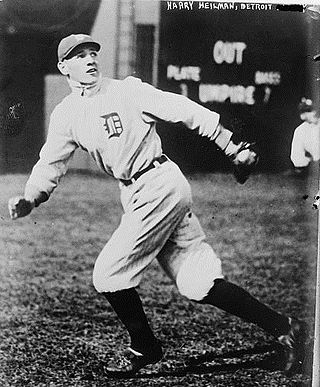
Elections to the Baseball Hall of Fame for 1952 followed the same rules as 1951. The Baseball Writers' Association of America (BBWAA) voted once by mail to select from major league players retired less than 25 year and elected two, Harry Heilmann and Paul Waner. Meanwhile, the Old-Timers Committee, with jurisdiction over earlier players and other figures, did not meet. A formal induction ceremony was held in Cooperstown, New York, on July 21, 1952, with Commissioner of Baseball Ford Frick and National League president Warren Giles in attendance.
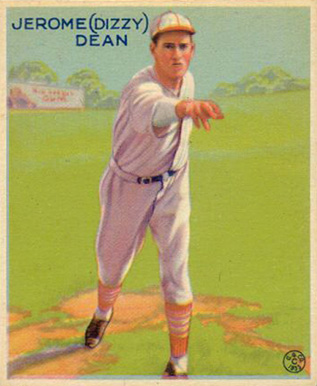
Elections to the Baseball Hall of Fame for 1953 followed a radically new procedure. The institution appointed its Committee on Baseball Veterans, the famous "Veterans Committee", to meet in person and consider pioneers and executives, managers, umpires, and earlier major league players. Committees in the 1930s and 1940s had chosen several pioneers and executives, but this was the first direction of anyone's attention to field personnel other than players, the managers and umpires.
Elections to the Baseball Hall of Fame for 1968 followed rules revised in June 1967, which returned the Baseball Writers' Association of America (BBWAA) to annual elections without any provision for a runoff. In the event, the BBWAA voted once by mail to select from recent major league players, and elected Joe Medwick. The Veterans Committee met in closed sessions to consider executives, managers, umpires, and earlier major league players. It selected two players, Kiki Cuyler and Goose Goslin. A formal induction ceremony was held in Cooperstown, New York, on July 22, 1968, with Commissioner of Baseball William Eckert presiding.

Elections to the Baseball Hall of Fame for 1967 included a special election, as the Baseball Writers' Association of America (BBWAA) held its first balloting in an odd-number year since 1955. The special election was held due to some ineligible players having received votes in the prior year's balloting, and the BBWAA wanting "to give those eligible every opportunity" to be selected.

Elections to the Baseball Hall of Fame for 1964 followed the system introduced for even-number years in 1962. The Baseball Writers' Association of America (BBWAA) voted by mail to select from recent major league players with provision for a second, "runoff" election in the event of no player receiving enough votes for induction. The runoff was necessary this year, with Luke Appling the winner. Further, the eligibility of retired players was reduced from having retired 30 years prior to election to 20 years prior.
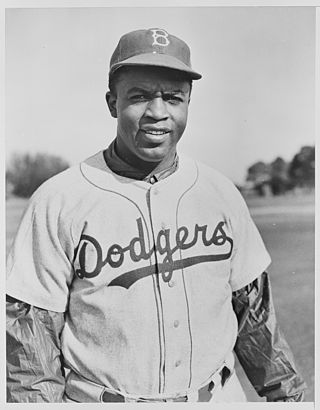
Elections to the Baseball Hall of Fame for 1962 followed a new system for even-number years. Since 1956 the Baseball Writers' Association of America (BBWAA) and Veterans Committee had alternated in their duties, but the BBWAA, voting by mail to select from recent major league players, had elected no one for 1958 and no one for 1960. Now there would be a second, "runoff" election in case of no winner. At the same time, the Veterans Committee resumed meeting annually to consider executives, managers, umpires, and earlier major league players.
Elections to the Baseball Hall of Fame for 1958 followed a system established after the 1956 election. The Baseball Writers' Association of America (BBWAA) voted by mail to select from recent major league players; they elected no one. The BBWAA was voting only in even-number years, with the Veterans Committee meeting only in odd-numbered years to consider older major league players as well as managers, umpires, and executives. For the first time since 1950, the induction ceremonies in Cooperstown, New York, were canceled because there was no one to induct, the second such occurrence in Hall of Fame history.
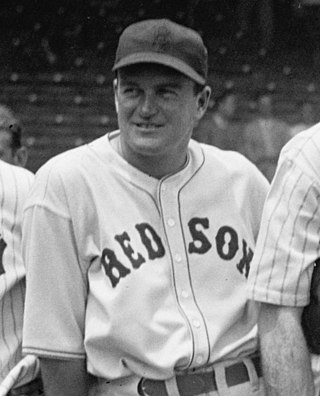
Elections to the Baseball Hall of Fame for 1956 followed a system that had been the object of criticism and reform in recent years, which would continue that summer. The Veterans Committee was meeting only in odd-number years to consider older major league players as well as managers, umpires, and executives. The Baseball Writers' Association of America (BBWAA) voted by mail to select from recent players and elected two, Joe Cronin and Hank Greenberg. A formal induction ceremony was held in Cooperstown, New York, on July 23, 1956, with Commissioner of Baseball Ford Frick presiding.

















